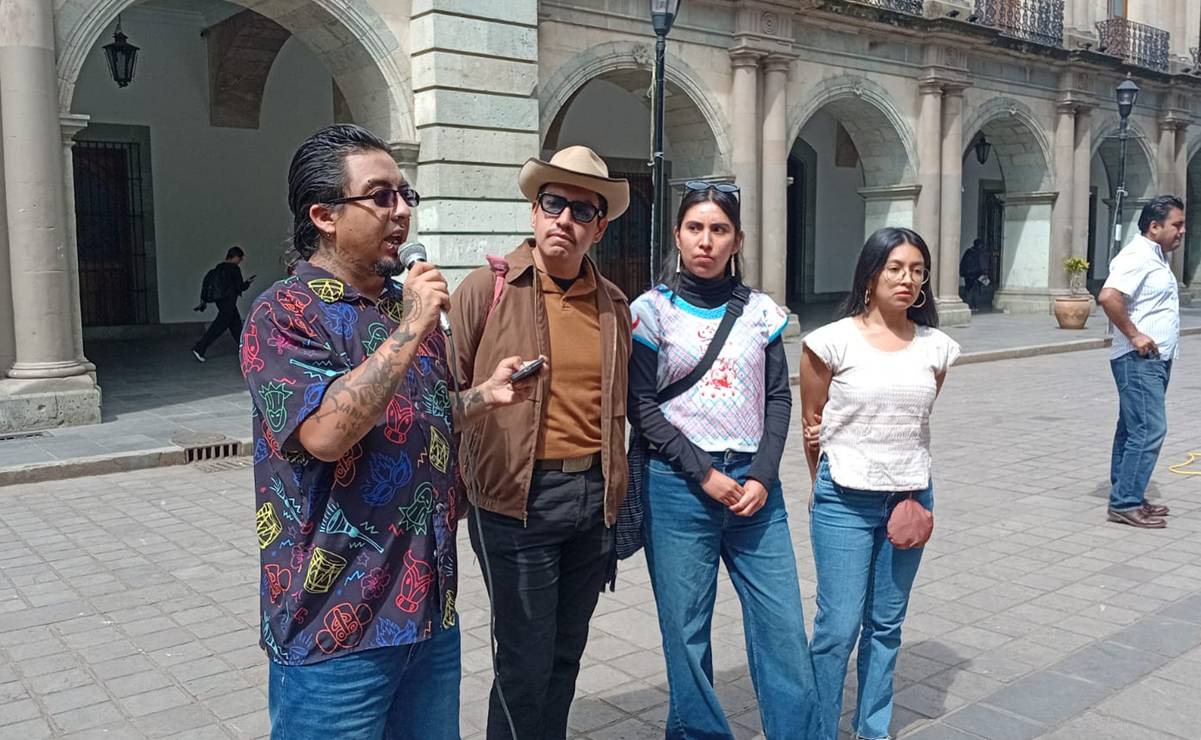Mario Quintero, a member of the Assembly of Indigenous Peoples of the Isthmus in Defense of Land and Territory (APIIDTT), asserted that the government, far from assuming its responsibility for the effects of gentrification and tourism, has dismissed citizen protests, accusing them of xenophobia or discrimination against foreigners.
During the announcement of a meeting in Oaxaca to address these issues, he maintained that these phenomena continue to devastate cities, towns, and territories and are driven by deliberate and profoundly neoliberal public policies.
“They are stripping thousands of people of their right to live where they were born, displacing entire communities, making daily life more expensive, and reducing our streets to decorations serving financial interests.”
Read also: More than 4,000 IMSS-Bienestar workers in Oaxaca without job security; They demand the surrender of their appointments
Accompanied by representatives of other social organizations, he affirmed that the federal government’s accusation of xenophobia intentionally seeks to argue that this movement is against foreigners.
However, he maintained that the real issue is that the fight against gentrification and touristification is a rejection of an extractive model that turns land, housing, and culture into commodities.
“Therefore, we reiterate that the anti-tourism and anti-gentrification movement recognizes real estate investment funds, housing usurers, digital platforms, and the very governments that legislate in their favor as enemies and responsible for the situation of rising prices, privatization, and displacement of urban and rural spaces. This is not about opposing foreigners to favor national interests,” he said.
For Mario Quintero, capital has no homeland, and therefore, international and national actors are allies in this process of dispossession.
The State, he explained, has promoted a new form of dispossession, folklorizing indigenous cultures, turning them into tourist attractions, and selling them “to the highest bidder,” while the communities themselves are displaced or impoverished.
“Behind these narratives is a clear strategy of commodifying Indigenous, communal, and ancestral values, used as a cover to attract investment without any real respect for the self-determination, territory, and dignified life of these peoples. Indigenous communities do not need to be made visible through tourism, but rather recognized and respected in their struggle for land, water, housing, and autonomy. They are not assets for consumption; they are political subjects.”
Ahead of the meeting, which will take place from July 16 to 21, 2025, in Santa María Atzompa, Oaxaca, he demanded an immediate end to the expansion of megaprojects “disguised as development,” a moratorium on new licenses for tourist accommodations in “stressed” areas, recognition of the territorial rights of Indigenous and popular communities, strict regulation of platforms like Airbnb, and the expropriation of homes seized by property funds and real estate companies.
“Let’s stop using hate speech against foreigners as a political shield to avoid talking about the real problem of the neoliberal model of city and territory. This struggle is not nationalist or xenophobic; it is a struggle for life, for dignity, and for the right to stay. It’s not tourismophobia, it’s dispossession,” he insisted.

Source: oaxaca.eluniversal




